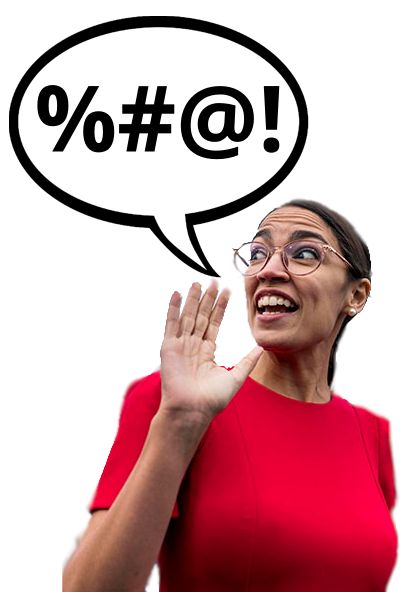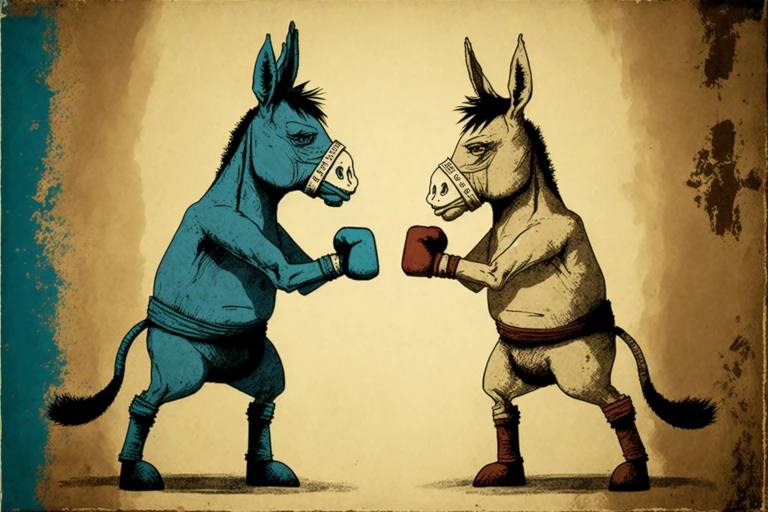For now, Democrats control the Presidency and both chambers of congress. Many progressives hoped to quickly pass ambitious legislation in 2021, but that didn’t happen. It probably won’t happen in 2022, either. There’s one thing standing in the way of passing meaningful legislation and it isn’t Joe Manchin. It’s the careless rhetoric of vocal progressive politicians. They don’t seem to understand that socialism is a dirty word.
After the 2021 election, Representative Abigail Spanberger was recorded telling fellow Democrats that “we must never use the words ‘socialist’ or ‘socialism’ ever again.” Speaking to Jake Tapper, Alexandria Ocasio-Cortez responded that “Republicans levied very effective rhetorical attacks against our party,” but insisted that Democrats struggled due to an outdated internet strategy rather than an association with socialism. While there may be problems with the online Democratic operation, it’s a mistake to acknowledge the power of Republican rhetoric without recognizing the need for Democrats to likewise take rhetoric seriously.

Recently the term “socialist” has begun to experience a resurgence in the American left. Although Bernie Sanders has openly identified as a socialist for decades, his recent presidential runs under a Democratic ticket have helped the moniker gain acceptance from progressive political factions. This is bad for progressive causes and undermines much of the progress centrist Democrats have made.
If you had told me fifteen years ago that the term “socialist” would begin to gain traction among mainstream Democrats, I would have jumped for joy. In my youth I blazed through every Kurt Vonnegut novel, many of which openly glorified perennial socialist candidate Eugene Debs and his political cause. To this day I believe that Vonnegut, as well as socialist authors such as John Steinbeck and Upton Sinclair, have important lessons to teach us. My political philosophy has not drastically changed. What has changed is my perspective. Having spent years studying rhetoric, I have come to view the word “socialist” as a distasteful term despite its use by some of my favorite authors.
In an episode of South Park, the characters attempt to transform the word “fag” from an anti-homosexual slur to a generic insult. The episode had noble intentions, but ten years later, it has done nothing to divorce the word from its homophobic past. Trey Parker, who wrote the episode, correctly argued that language is malleable, but he wrongly assumed the power to steer the ever-changing nature of a word. Kurt Vonnegut, like Bernie Sanders, made the same error with the word “socialist.” It has such a fixed meaning in the minds of so many Americans that quibbling over definitions is rhetorically ineffective. For many Americans, socialism means a government run economy. It means the rationing of goods. Worse, it means totalitarianism.
Defenders of the term trot out the same old ineffective defenses. They argue from definition. They speak in terms of abstract theories of distributive justice or they point to Scandinavia. They point out that 1984 can’t be a critique of socialism when Orwell was a self-described socialist. These defenses fall on deaf ears. Most Americans don’t have a college degree and even among those who do, what they study (or don’t study) greatly informs how they view the world. A history major is much more likely to think about the USSR than Sweden when you mention socialism. Imagine what a politically disinterested engineer or accountant thinks about it.
Further complicating matters, socialism has no consensus definition. Not even those who view socialism in purely economic terms can agree on its meaning and all sorts of splintered movements fall under its umbrella. At what point does a country become socialist? How much economic capital must a government own to cross the threshold from capitalist to socialist? How much of a voice must the proletariat have? Obviously, no such thresholds exists. All governments own some amount of economic capital, whether it’s the U.S. Post Office, public transportation, or public housing. Capitalism and socialism exist on a spectrum with no clear distinctions to determine when one has crossed from one to the other. No successful system of distributive justice has ever been purely capitalistic or socialisitc.
So why do politicians such as Sanders seek to promote a label that presents the greatest barrier to the very policy changes they seek? During his presidential runs, Sanders seemed to have somewhat learned that lesson by choosing to focus specifically on healthcare and education without mentioning socialism, but it was decades too late. Since his days as the Mayor of Burlington, Sanders has cultivated a brand around the word socialist. He has made his bed. But there’s no excuse for Ocasio-Cortez, who openly identifies as a Democratic Socialist. She may point to policy goals such as sweeping investment in healthcare and green energy as socialist, but she does not give these policies the opportunity to be evaluated on their own merits by self-identifying as a socialist. Associating oneself with Bolsheviks is a poor strategy for garnering broad support. Steve Bannon, for all his buffoonery, never claimed to be a “fascist” despite promoting a fascist philosophy.
Black Lives Matter has also been hampered by founding member Patrisse Cullors citing Marx, Lenin, and Mao as intellectual influences. This has led to a conservative denunciation of BLM as a “Marxist organization.” Critics now have an excuse to ignore the legitimate concerns about equality and police overreach raised by BLM and can instead launch attacks that distract from these important issues.
One might argue, like Ocasio-Cortez does, that conservatives are launching effective rhetorical attacks and those being attacked are blameless. But the attacks are only effective because prominent progressives have provided the ammunition for their own execution. Prominent conservatives have learned to stop espousing their admiration for the toxic ideology of Ayn Rand for this very reason. Even if they agree with the big-picture libertarian economics of Rand, her writings are too littered with the indefensible and the contradictory to be publicly defended.
None of this is to say that Democrats need to be homogeneous in their ideas. They just need to better express their diverse ideas. Using the term “socialist” isn’t just problematic because it opens the door to effective criticism, it’s also problematic because it’s intellectually lazy. A politician or activist campaigning under the banner of socialism tells me nothing about their actual policy goals. Its utter lack of specificity renders it as meaningless as various other ambiguous political labels such as “fiscal conservative” or “political outsider.”
Self-described American socialists sabotage their own goals by refusing to acknowledge the toxicity of a moniker they unnecessarily assume. Words matter. In a representative government, rhetoric is the only vehicle to enact political change. Persuading others to support the causes we champion requires us to adopt the argot of our audience. This does not mean we ought to be dishonest, it just means that we have to understand the multiplicity of meaning words have that are relative to audience. Effective communication requires using a vocabulary that establishes a common understanding between rhetor and audience. In America, identifying as a socialist is like yelling, “I like Fidel Castro!”





